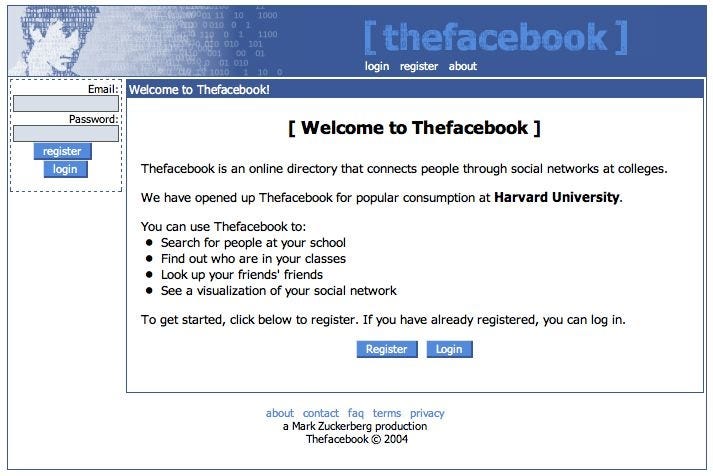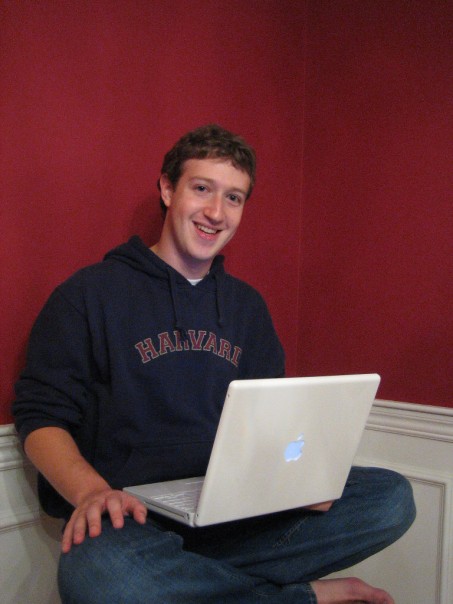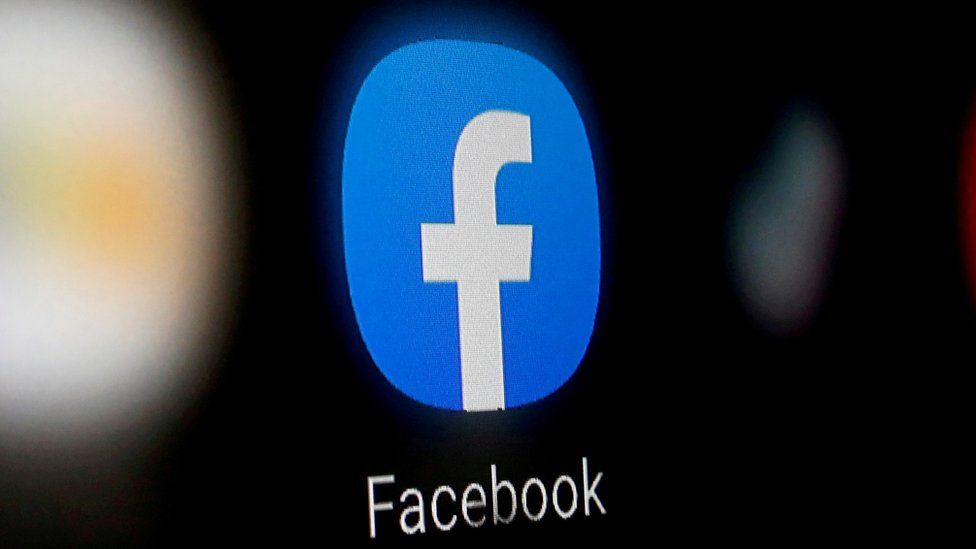By Penny Theodorakopoulou,
17 years ago, one of the most undisputedly popular social media platforms was created — Facebook. To be more precise, on February 4, 2004, Facebook — or TheFacebook, as it was called in the beginning —, was created by Mark Zuckerberg. At least that is what most people are aware of. The reality differs a tad, however.
The origin of Facebook: Facemash
Facebook was not the website we are familiar with nowadays; and that is because it did not start as a social media platform but as a “hot-or-not” website. More specifically, in 2003, Zuckerberg, who was attending his second year as a student at Harvard University, wrote the software for an internet site called Facemash. In order to create that website, he had to hack into Harvard’s security network, where he copied the student ID images employed by the dormitories and used them to populate his new website. Website visitors could use Facemash to compare two student photos side-by-side and determine who was “hot” and who was not. Facemash opened on October 28, 2003, attracting 450 visitors and 22,000 photo-views in a matter of just four hours. However, it got shut down a couple of days later by the Harvard administration. In the aftermath, Zuckerberg faced serious charges of breach of security, violation of copyrights, and individual privacy. Though he faced expulsion from Harvard for his actions, all charges against him were eventually dropped.

TheFacebook: Mark Zuckerberg’s “stolen concept”
After the success Zuckerberg had with the creation of Facemash, he told the Harvard Crimson, Harvard’s daily student newspaper, that he would be able to create a website where people could upload photos, comment on statuses and other Harvard students’ online page, and send messages to each other, pretty much what Facebook nowadays is all about, with the only difference that it was exclusive among students on Harvard’s campus. On February 4, 2004, with the investment of $1,000 from both himself and another Harvard student, Eduardo Saverin, TheFacebook was officially open for Harvard’s students to socialize.
In just 24 hours, the registrations on TheFacebook were around 1,200 to 1,500 registrants; and after a month, it had more than half the undergraduate population at Harvard. Six days after the website’s launch, however, three senior students from Harvard University, Cameron Winklevoss, Tyler Winklevoss, and Divya Narendra, claimed that Mark Zuckerberg had “stolen” their idea. Specifically, they accused Zuckerberg of intentionally misleading them into believing that he would assist them to create a social network for Harvard-only students, HarvardConnection.com, and thus “stealing” their idea for Zuckerberg’s personal profit. As expected, the three Harvard seniors reported Zuckerberg to the Crimson, which immediately began its investigations on the matter. Four years later, in 2008, the Winklevoss brothers and Narendra sued Zuckerberg which resulted in a settlement, for the total amount of $300 million at Facebook’s IPO (initial public offering), or 1.2 million Facebook shares.
TheFacebook’s expansion and change of name – Facebook
Seeing the rapid growth of TheFacebook, Zuckerberg wanted to expand the website to other universities as well. So, a team was formed in order to do that: Eduardo Saverin was in charge of business aspects, Dustin Moskovitz was the programmer of the website, Andrew McCollum was the graphic artist, and Chris Hughes was the spokesman of the website. A month after TheFacebook’s launch, the website expanded to Stanford, Columbia University, New York University, Dartmouth, Cornell, University of Pennsylvania, Brown, and Yale, which marked only the beginning of Zuckerberg’s newly built empire, with the help of his roommate, Dustin Moskovitz. After the first expansion to the abovementioned universities, TheFacebook became available to all Ivy League and Boston-area schools, gradually conquering by its presence to most universities in the United States and Canada.

In June 2004, the crew of the States-famous website moved its headquarters to Palo Alto, California. Why though? It is known that the co-founder of Napster, Sean Parker, had approached Mark Zuckerberg, secretly advising him to add advertisements on the website, moving the headquarters to a neutral place instead of being in Harvard’s dorm rooms, as well as funding TheFacebook’s crew; and over the summer of the same year, Sean Parker had become the company’s president. In 2005, the company eventually dropped “The” from its name after purchasing the domain name facebook.com for $200,000, because it sounded “cooler without “The”, said Sean Parker.
In September 2005, a high school version of the website was released on various high schools, something that Zuckerberg proposed as a “logical step”. On October 1, 2005, Facebook expanded to the United Kingdom, being available to twenty-one universities, whereas, on December 11 of the same year, Australia and New Zealand’s universities could also have access to Facebook, summing up to 2,000+ colleges and 25,000+ high schools in the United States, Canada, Mexico, the United Kingdom, Australia, New Zealand, and Ireland. By December 2005, Facebook had 6 million users. Lastly, on September 26, 2006, anyone over the age of 13 could be on Facebook with a valid email address.
References
- Mary Bellis, The History of Facebook and How It Was Invented. Available here
- Mark Hall, Facebook. Available here
- The Social Network, 2004




